On 26 February 1988, a small item in the fashion industry trade bible Women’s Wear Daily announced the plans of Prada – then an Italian accessories and luggage brand, founded in 1913 – to offer a women’s ready-to-wear line. “The line will be designed by Miuccia Prada, designer of Prada accessories,” stated the piece – Prada having taken the company’s helm in 1979. Under her direction, the company had already created what would become cemented in fashion history as the ultimate anti-status bag, the Prada nylon rucksack, a successful antidote to the glitzy, gilded extremes of 1980s fashion but poised to go stratospheric in the 1990s, a hand-held summary of the era’s dominant trends of deconstruction and minimalism, and a portent of things to come.
Because across the ensuing three decades, Prada would revolutionise fashion – a process chronicled in Prada Catwalk, which charts every Prada womenswear catwalk show from the very first in 1988 through to the brand’s Spring/Summer 2018 collection, something of a ‘greatest hits’ riffing on Miuccia Prada’s own obsessions with maid’s uniforms, schoolgirl garb and twists on luxury.
In-between are collections that are chic – sometimes ugly, sometimes sincere – and radical, powerful in their propositions of different identities and appearances for women, intrinsically keyed with the tenor of the time in which they are created but nevertheless creating a discernible ‘house style’, a set of Prada codes. And throughout, again and again, appear the voice and hand of Miuccia Prada – sometimes even her avatar, with models dressed as her and the designer herself taking her bow dressed, inimitably and inevitably, in Prada.
Backstage after each, Miuccia Prada describes, discusses and dissects her work – her voice is captured in this book too, illuminating her through-processes either in real-time or in retrospect, adding an extra layer of analysis and depth of thought.
To coincide with the launch of Prada Catwalk – written by AnOther’s editor-in-chief Susannah Frankel and based on extensive conversations with Miuccia Prada over more than 20 years – here is a selection of ten landmark Prada catwalk shows. These are the shows that shifted the aesthetics of the label and shaped contemporary fashion – presented here alongside Mrs Prada’s own words.
Autumn/Winter 1988
Shown in March of 1988, the debut Prada ready-to-wear collection riffed on Miuccia Prada’s own wardrobe – of school uniforms and aches of black and brown, running counter to 80s ideas of excess being synonymous with luxury. This attitude – a wide coat wrapped and clasped shut – reflected Mrs Prada’s own way of wearing clothes, and reappears time and time again in her shows.
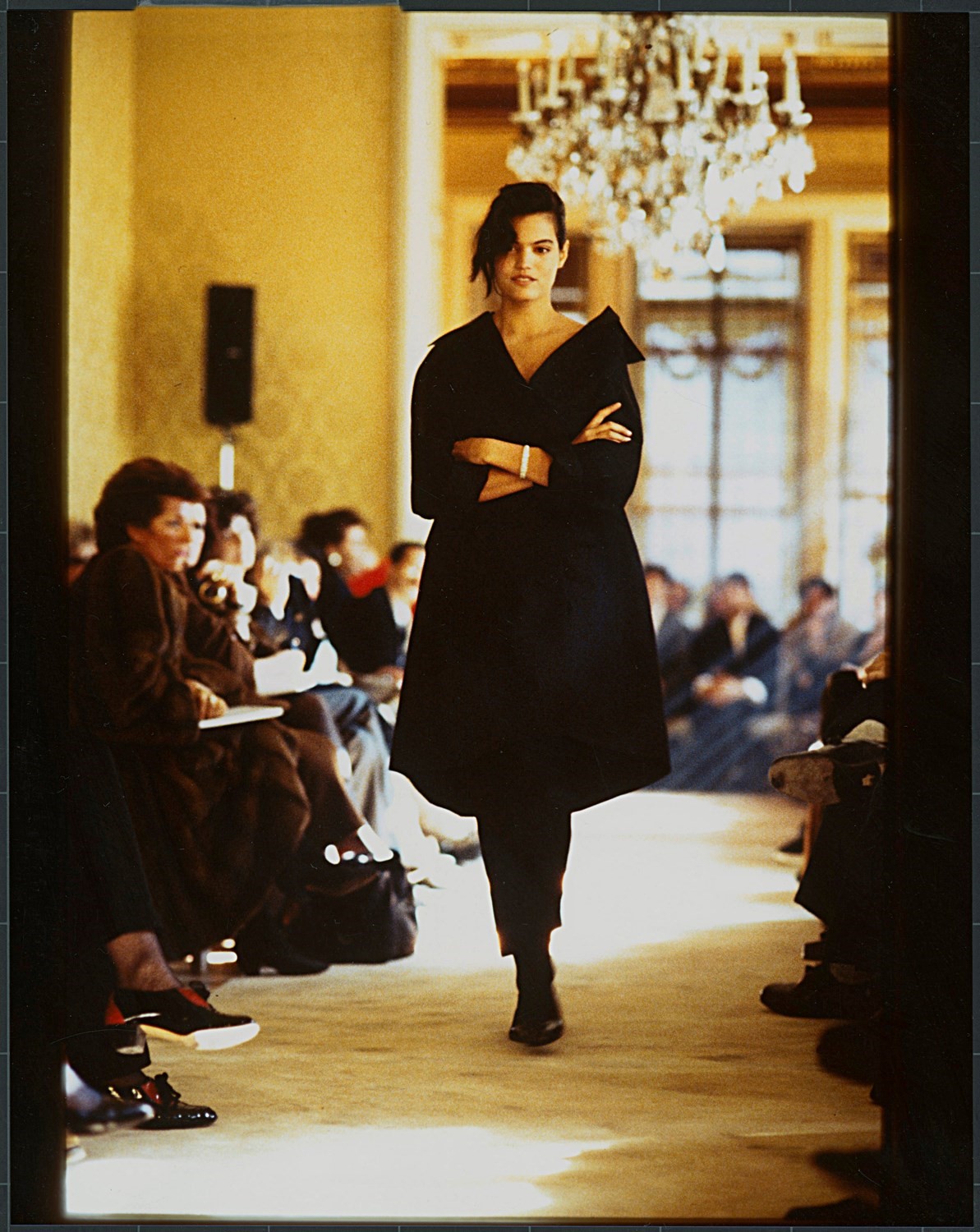
Spring/Summer 1996
Deliberately ‘off’ colours and retro patterns drawn from wallpaper and formica lead to this collection – one of Prada’s most influential – being dubbed ‘Ugly Chic’. “They thought it was in horrible taste – the famous show about ‘Ugly Chic’, which I think is a terrible phrase, but that’s how it came out,’ said Miuccia Prada 20 years later. “In fashion, what was well-developed in literature, in movies, in art, was considered badness. Still now, I think that a part – the more conservative part – of the fashion world thinks that they’ll stick with the idea of glamour and beauty that is so obvious, so old.”
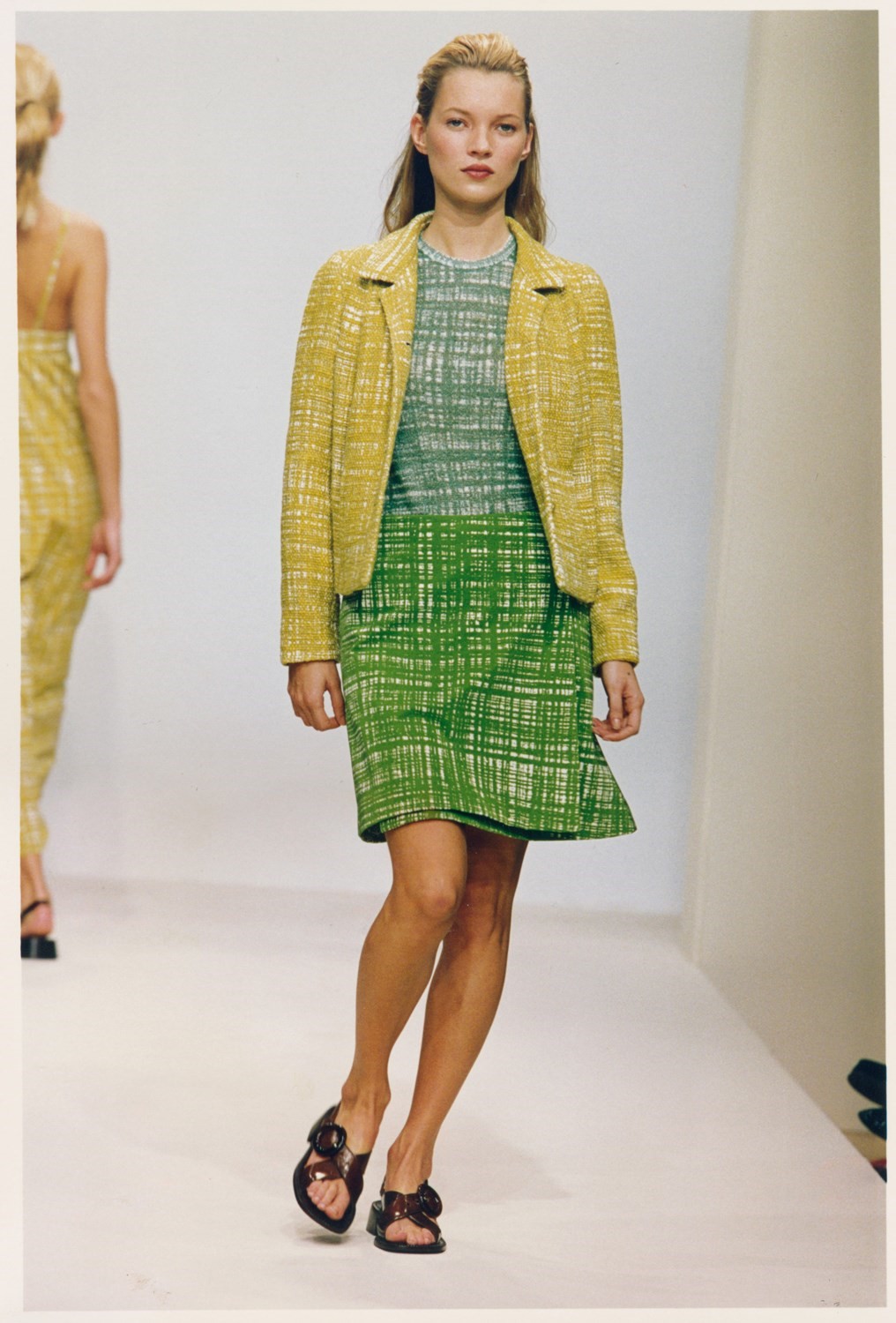
Spring/Summer 2000
For the new millennium, Miuccia Prada went back to tradition and classicism. “This was the only new thing possible. Super chic, very ladylike. In the past I’ve done so much experimentation but you can only go so far.”
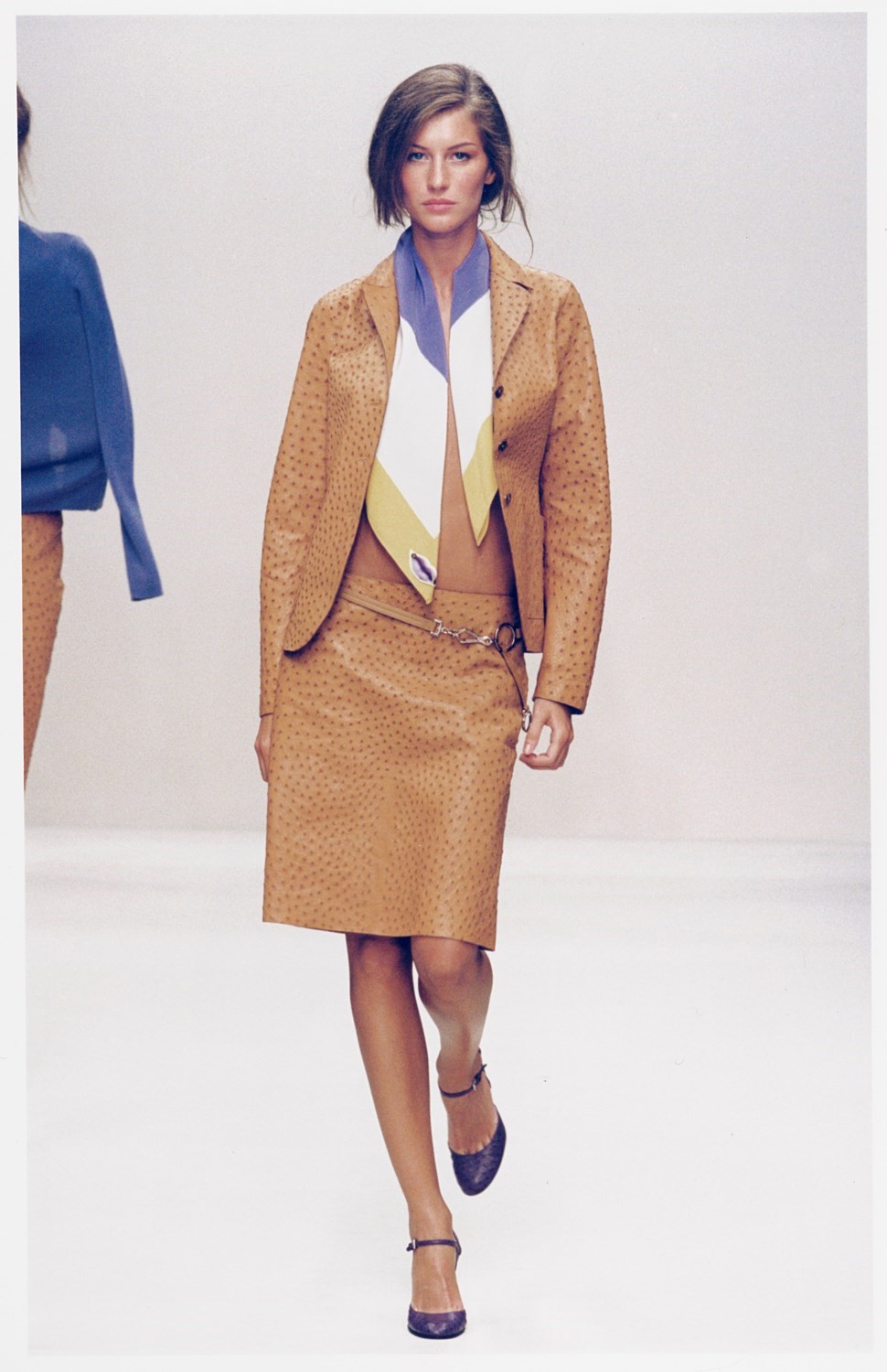
Autumn/Winter 2002
“I’m tired of hearing people tell me that I don’t do sexy things... I’m interested in the obsession with sexiness. I worked on what people think is sexy... my idea of sexy... is personal,” said Miuccia Prada in 2002.
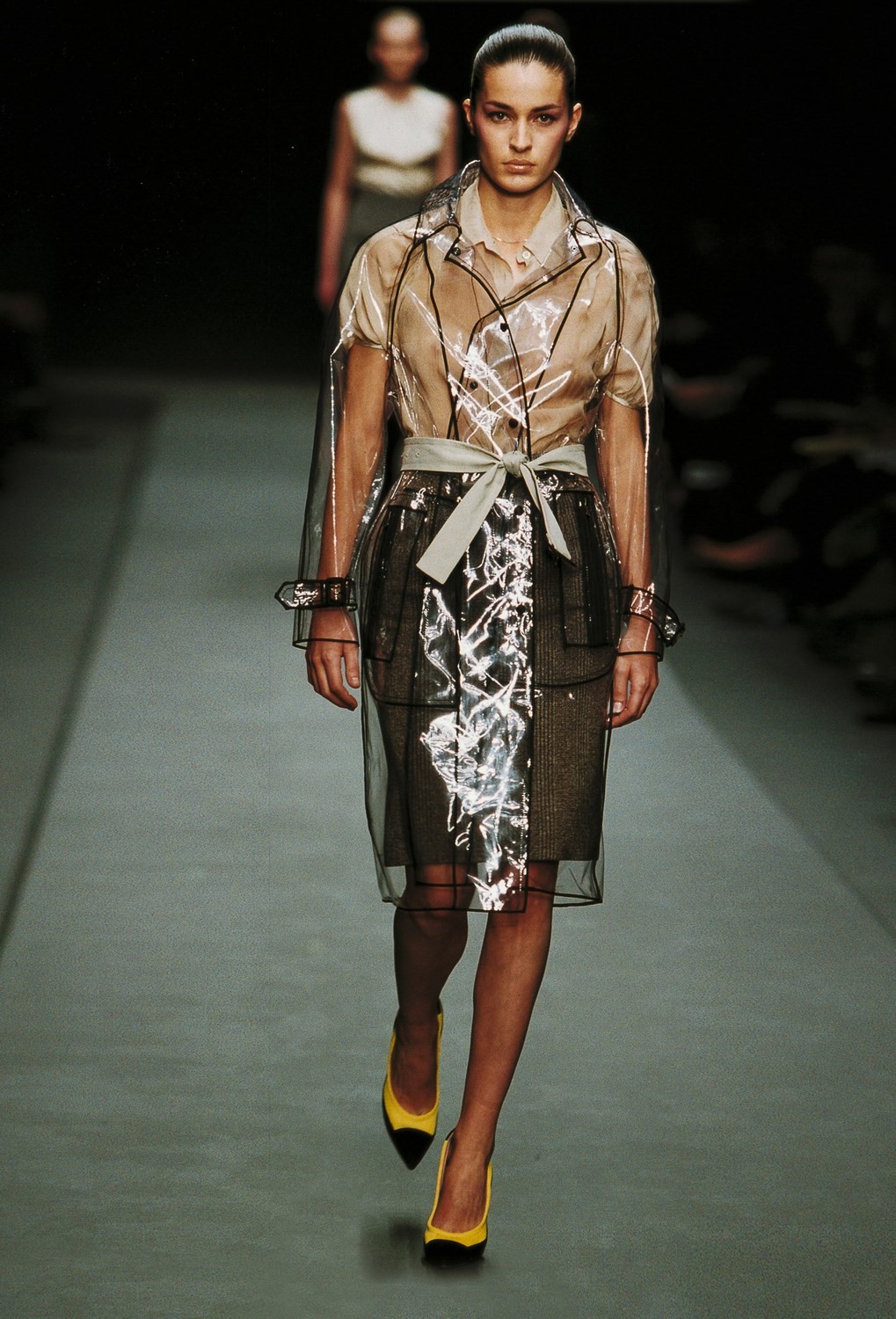
Autumn/Winter 2005
“I had an instinct to go back. To go back not to what I’d done before but to something more simple,” Miuccia Prada said at the time of her Autumn/Winter 2005 collection. “It was not only about the exterior but also the interior, a different aspect of femininity. The word dignity came up and power: dignified, powerful, deep, clever, beautiful women.”
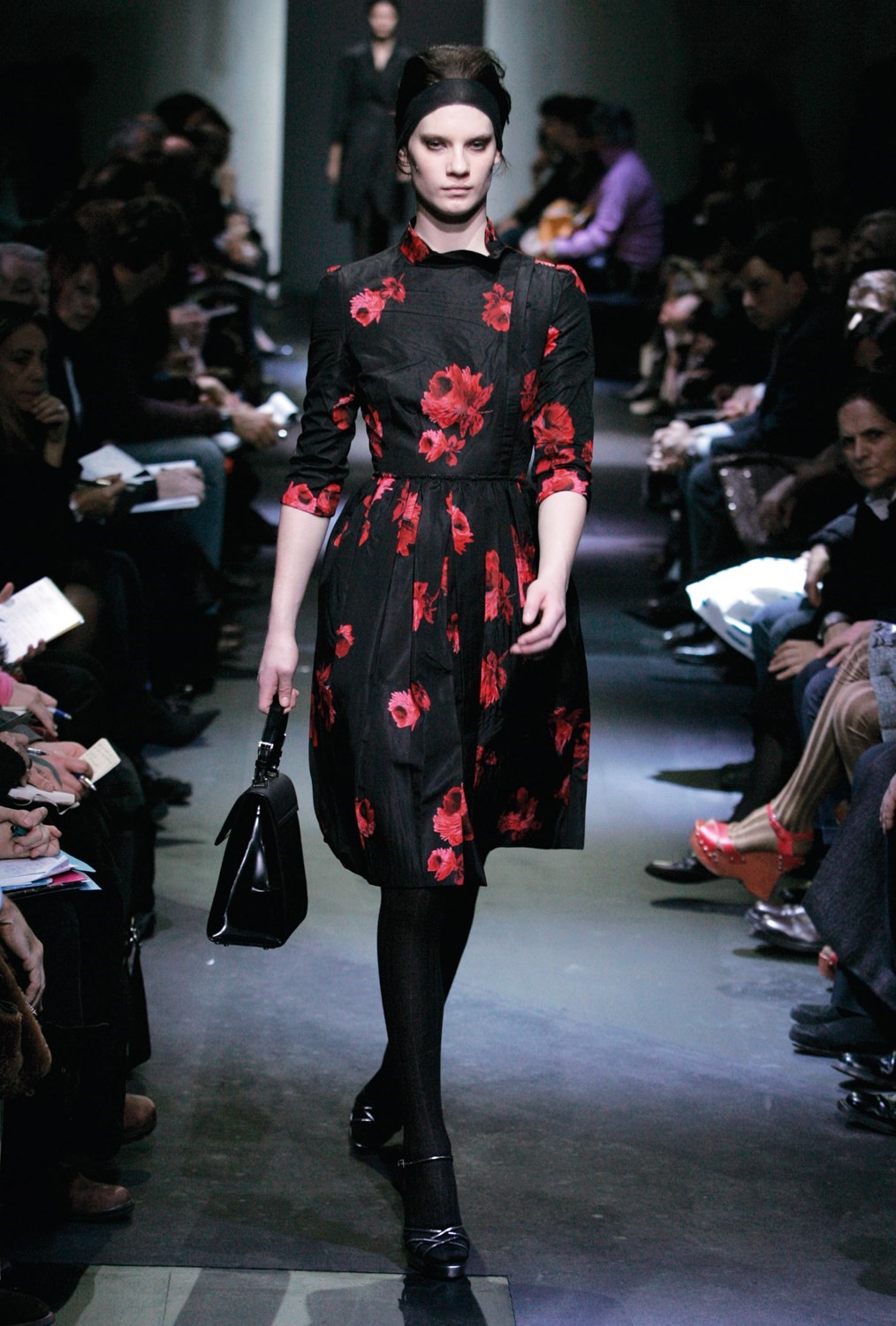
Autumn/Winter 2007
A collection that fetishised texture – with feathers, fake fur and celluloid pailettes forming surfaces that were “simple but strange”. “In the end, if you just want to look thin and sexy – to wear a narrow, sexy dress – then you end up with clothes that are boring,” Miuccia Prada said. “There is no possibility for invention... it’s much more exciting to have something interesting to look at and to wear and to experience your body in a different way.”
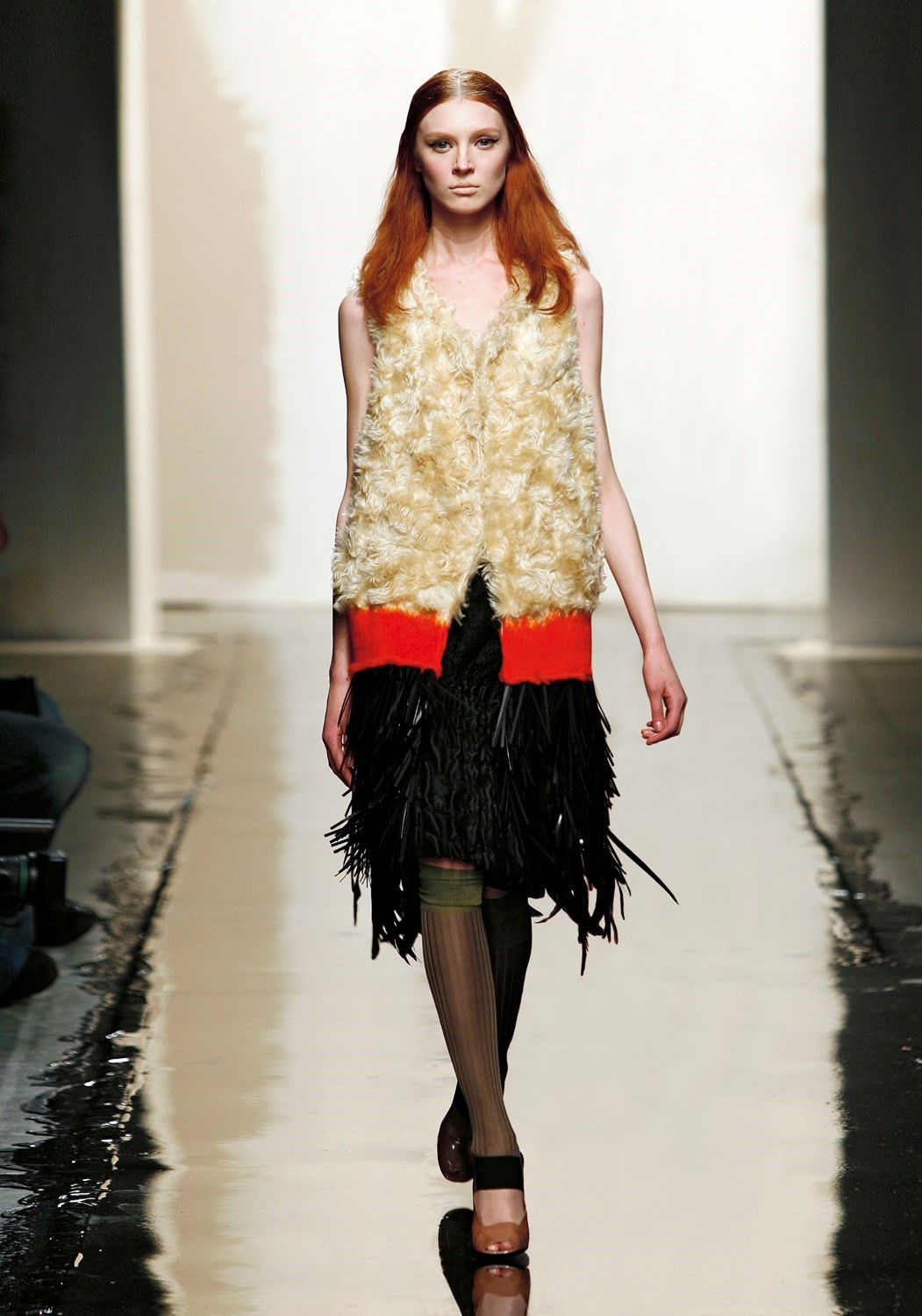
Autumn/Winter 2008
“You have to go all the way. A little touch of lace becomes pretty,” said Miuccia Prada. Pretty is a pejorative term in her vocabulary: this collection pushed lace all the way, evocative of funerals, weddings, christenings – every stage of a woman’s life.
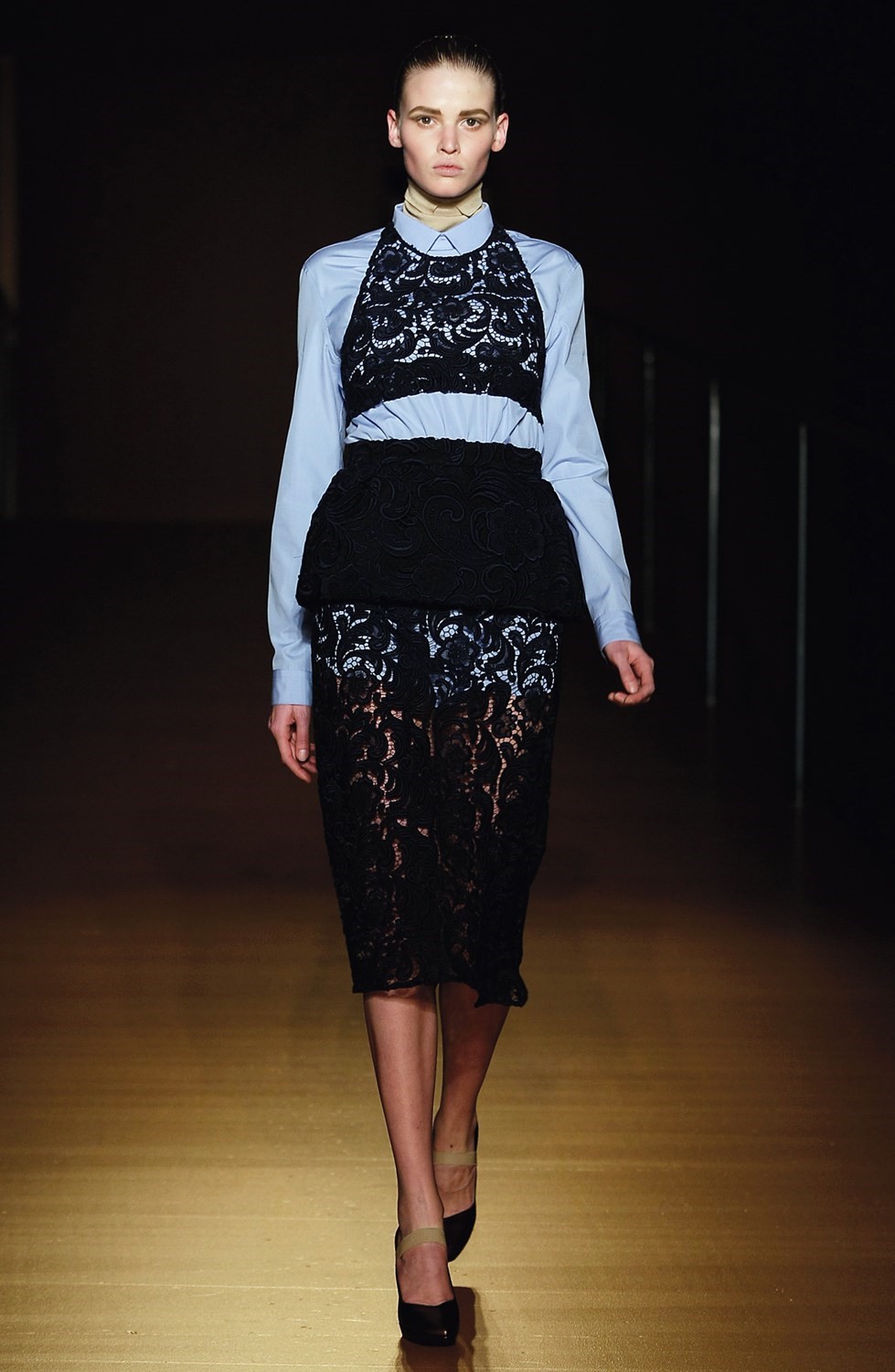
Autumn/Winter 2014
Of A/W14, Miuccia Prada says: “I really went bold. It’s about humanity, it’s about people’s feelings, emotion. I wanted to transmit that kind of humanity and that kind of thinking.”
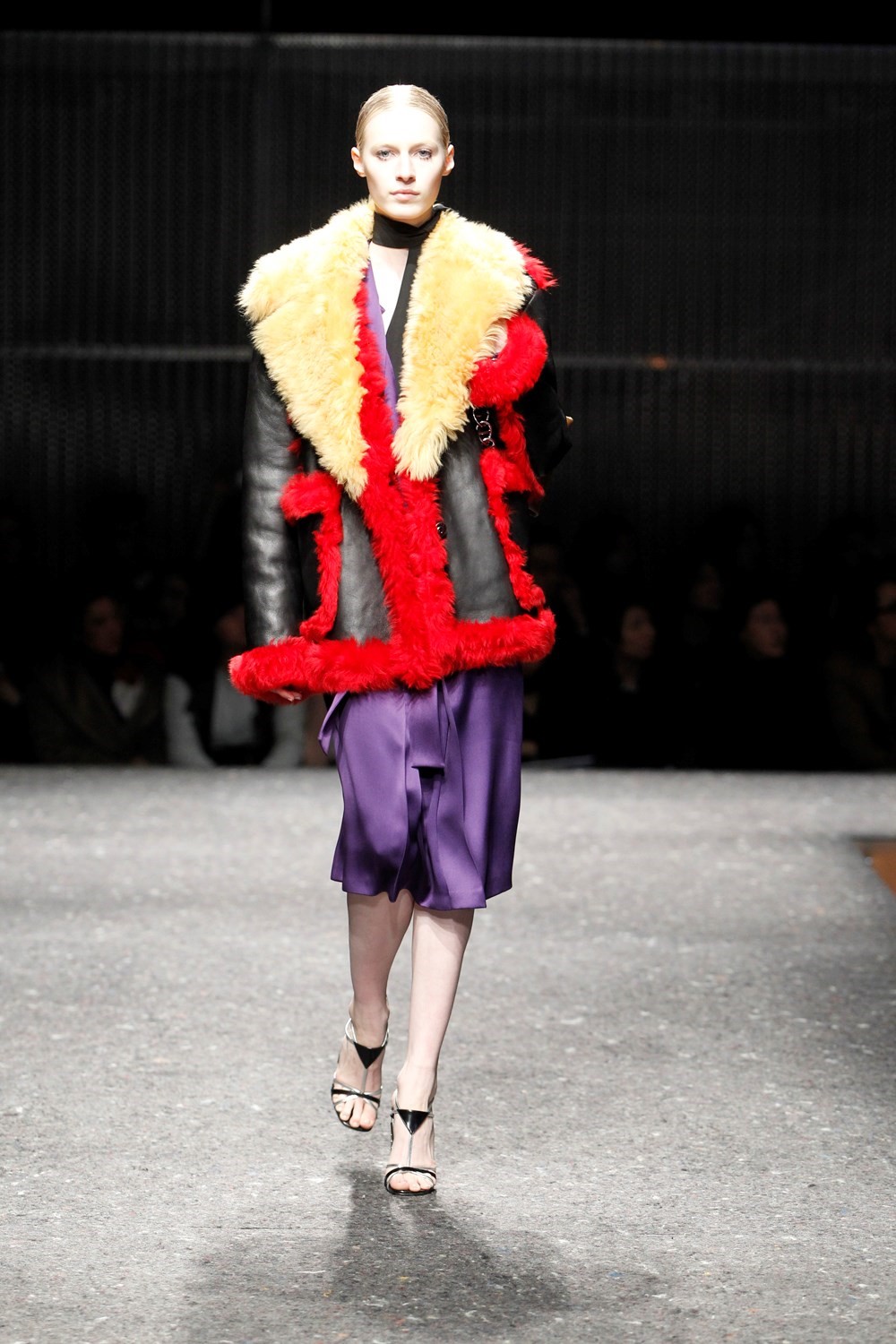
Autumn/Winter 2016
“It was about the history of women,” says Miuccia Prada, looking back to 2016. “Women have more facets [than men]. We are so much more complex. We are lovers, mothers, workers. We have to be beautiful.”
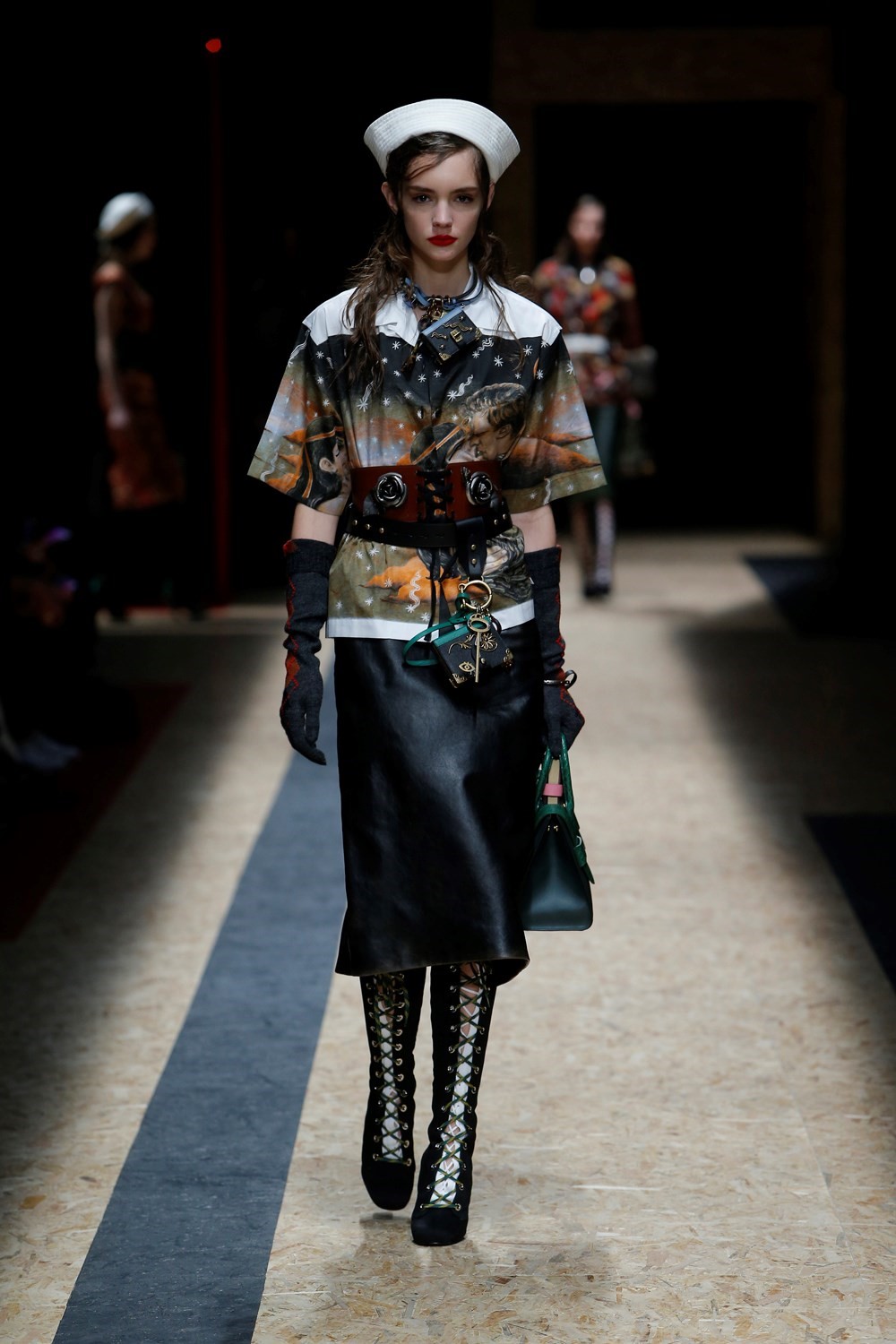
Spring/Summer 2018
And to the latest: “I wanted to break the rules of the classic, to discuss a wish for freedom and liberation and fantasy and, on the other side, the extreme conservatism that is coming – the duality out there,” Miuccia Prada says of Spring/Summer 2018.
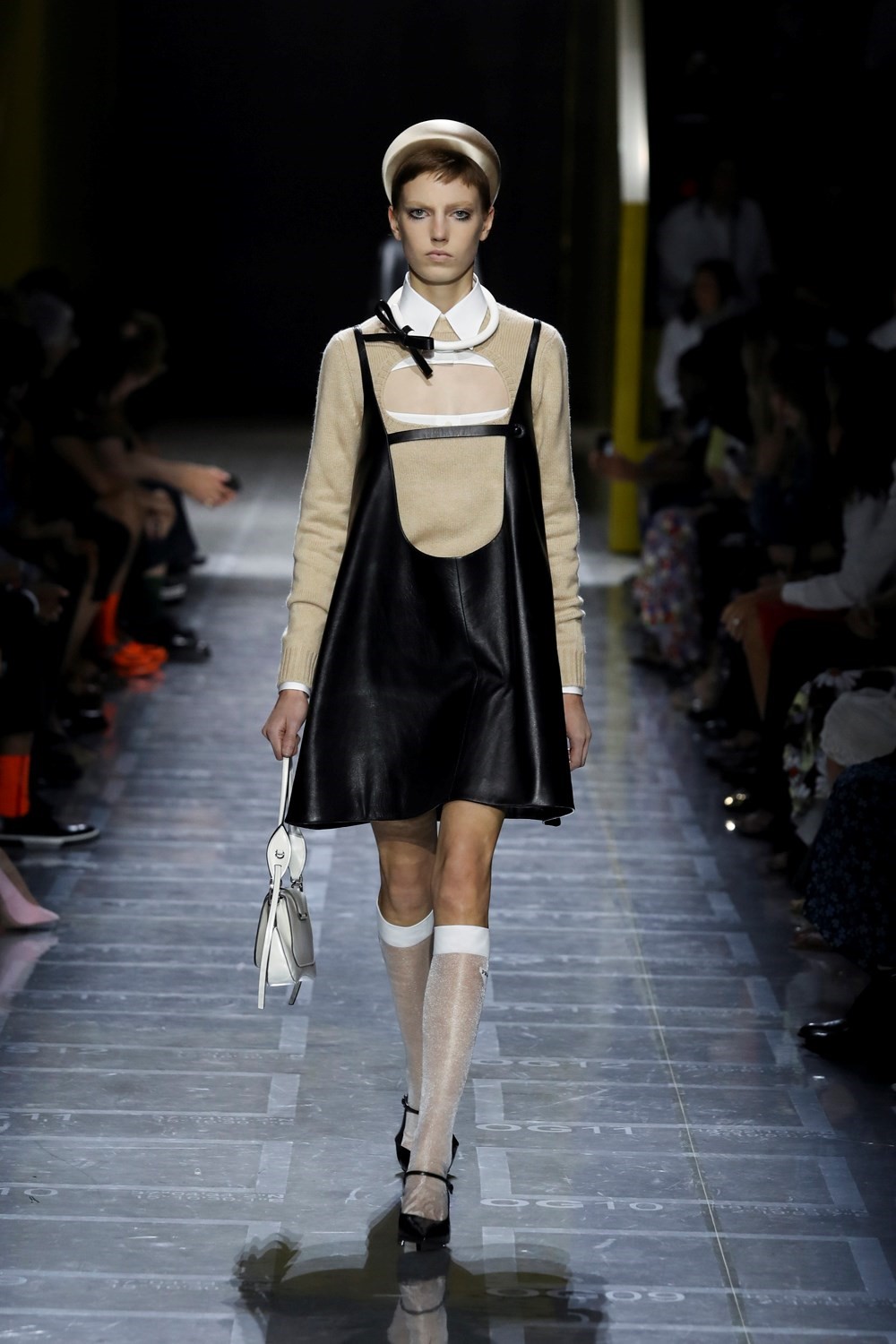
All quotes are taken from Prada Catwalk, published today by Thames and Hudson.





